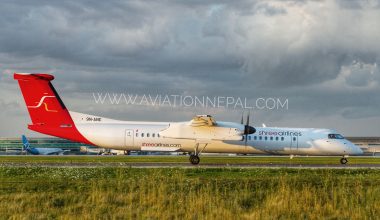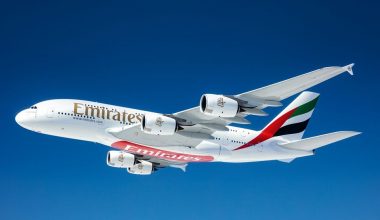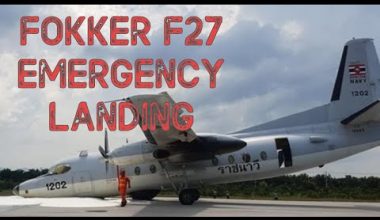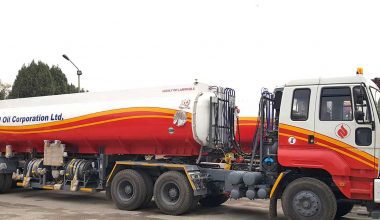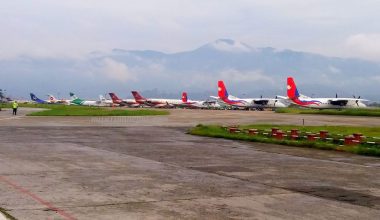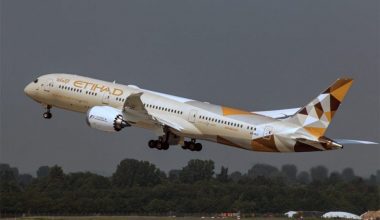Nepal has made a remarkable improvement in the international air safety audit undertaken by the UN’s specialized agency ICAO (International Civil Aviation Organization) from April 13 to April 25, where it was awarded an effective implementation score of 70.1%, 3 percent higher than the global average of 67.2 %. Despite Nepal’s high air safety score, the blanket ban of the European Union on Nepalese carriers still remains.
Civil Aviation Authority of Nepal, CAAN officials, say that if the EU doesn’t lift the ban on Nepali airlines even after making good progress on air safety scores, it will be a ‘political-led’ case.
Progress on ICAO’s air safety oversight audit
After nearly two weeks of reviewing Nepal’s flight safety and aviation security oversight capacities by a team of 10 ICAO experts, the UN civil aviation regulator ICAO published a report which showed Nepal received a higher safety oversight audit score than the global standard. The 10-member audit team assessed the implementation rate of eight critical elements (CEs) of the safety oversight system and whether Nepal had effectively executed safety-related Standards and Recommended Practices.

Nepal’s aviation in the present situation
Albeit the rise in ICAO audit score, it is still uncertain whether gave ‘Serious Safety Concern’ (SSC) tag to Nepal will be dropped, CAAN authorities say. According to some experts, the new report of ICAO will exert ‘ethical pressure’ on European Union to debar Nepal from such a list.
While Nepal has an effective implementation score of 70.1%, the Asia-pacific region is below the global standard with an average air safety audit score of 61.4%. In 2013, ICAO blacklisted Nepal-based airlines and put the SSC tag on Nepal’s aviation sector in its audit report 2013 after detecting several lapses and a lack of corrective action against the deficiencies pointed out by ICAO in 2009 audit. Based on ICAO’s SSC and a large number of air traffic accidents and incidents between 2009 and 2012, the European Commission imposed a blanket ban on Nepalese airlines in 2013.
Four years later, in 2017, the UN watchdog offloaded the SSC tag on Nepal after monitoring Nepal’s aviation safety oversight capabilities conducted by ICAO’s Coordinated Validation Mission (ICVM). However, the EU hasn’t removed Nepali airlines from the no-fly list since 2013.
What do CAAN officials say?
CAAN’s Director-General Pradip Adhikari says European Commission has no reason to keep Nepal on the Serious Safety Concern list after ICAO’s new report. But, it is still unclear if the EU will lift the restriction to allow airlines based in Nepal to fly in the 28-nation bloc, he says.
If it’s a technical matter, it is no longer necessary to complain about Nepal’s safety concerns, he added. According to DG Adhikari, the EU’s lack of concern towards the assessment done by ICAO, which monitors the global civil aviation sector to operate safely, reliably, and efficiently, is a considerable subject.
He affirmed that the evaluation done by ICAO is technical, well-detailed, and on-site. Asked about whether there was a political reason for keeping Nepal on the blacklist, he said that he was a technical person and believed in ranking.

‘How come Nepal’s ICAO air safety score outnumbered the global safety standard if the Nepalese sky isn’t safe? Why did Nepal’s air traffic increase day by day?’ He claimed that the EU had raised three main subjects while barring aircraft belonging to Nepali airline companies from the European skies. The first reason was the low ICAO safety oversight audit score below the global average, the second was a series of aircraft crashes, and the final being challenge to world air safety.
Adhikari said that it’s about to be a decade, from 2013 to 2023, since Nepal hasn’t seen deadly aircraft crashes, and so it’s not necessary to restrict Nepal now. With regards to the non-separation of the civil aviation authority to provide regulation and services, he said that the EU hadn’t urged to split the job of overseeing compliance with the project and aviation regulations governing the issuance of licenses to airlines and crews and maintained that it shouldn’t do too. As per him, the EU hasn’t raised questions to Bangladesh and Singapore, where authority performs the dual task of aviation regulation and air service.
What do experts say?
CAAN’s former Director-General Triratna Manadhar says that the website of the EU has mentioned carrying out tasks and measures according to ICAO’s audit and that the improved report of Nepal will exert an ethical pressure on the EU. Like Adhikari, he also advocates that the EU should lift the air restriction given the rise in the safety rating of the ICAO audit.
Source: BBC

